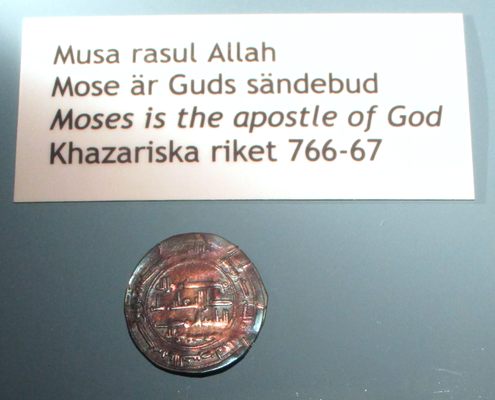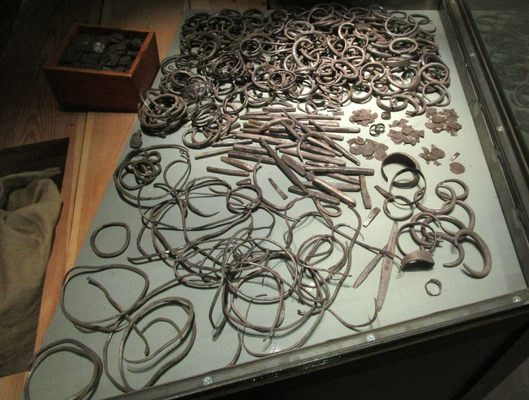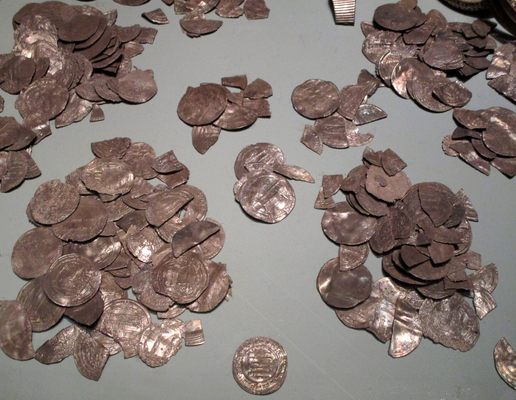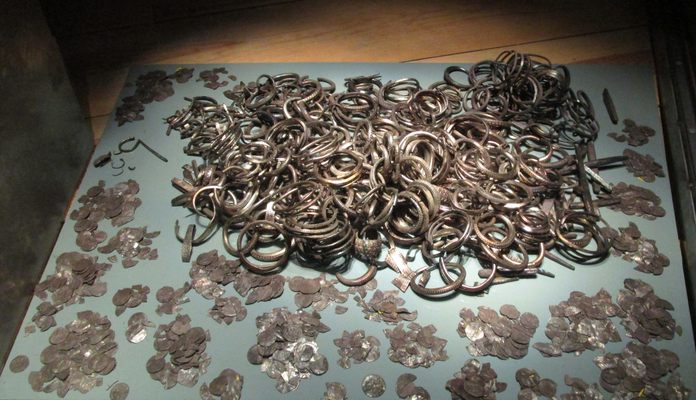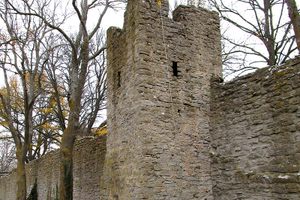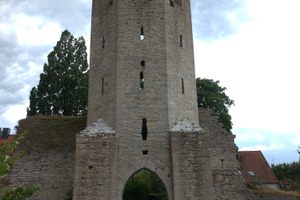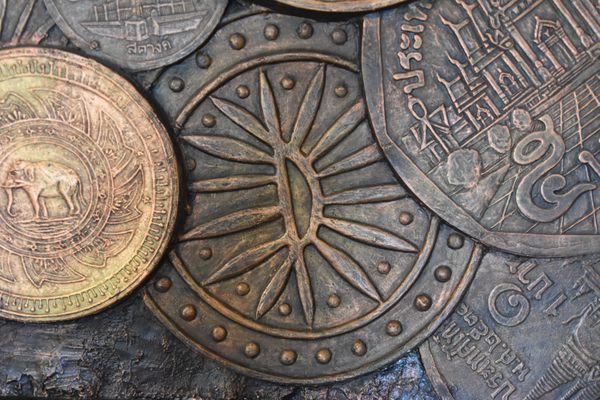About
In 1999, a TV crew accompanied archaeologist Jonas Ström and numismatist Kenneth Jonsson to an unassuming farm on Gotland, Sweden’s largest island. After a farmer had discovered a Viking coin, roughly 150 coins and artifacts had been unearthed. The crew got the footage they wanted and left the site, but Ström and Jonsson stayed behind, continuing their unofficial search with a metal detector. In less than half an hour, they discovered two massive caches of Viking treasure.
They immediately asked for permission to officially excavate the site, and over 2,000 people reportedly visited the farm the first weekend after the dig was made public. A third cache was soon discovered, and by the end of the excavation, 67 kilograms (148 pounds) of silver and 20 kilograms (44 pounds) of bronze artifacts had been dug up.
The hoard, believed to have been buried beneath a ninth-century outhouse, consisted of coins, ingots, and jewelry items such as rings, bangles, and necklaces. Of the 14,295 coins discovered here, as many as 14,200 of them were centuries-old Islamic dirhams. The remaining 95 were an assortment of Nordic, Byzantine, and Persian coins. A few were contemporary counterfeits.
Perhaps most compelling was the discovery of “the Moses Coin.” Minted in the Khazar Kingdom around 800, the coin imitates the design of the silver dirham, but mentions Moses rather than Muhammad in its inscription, offering some archaeological evidence for the popular yet unconfirmed claim that Khazar rulers converted to Judaism.
The Spillings Hoard is the largest Viking hoard ever discovered. Its treasures are now on display at Sweden's Gotland Museum.
Related Tags
Know Before You Go
The museum is open every day from 11 a.m. to 4 p.m. If traveling by car, follow 140 toward the harbor. Otherwise, take the bus to the Visby stop, and the museum will be about a kilometer (about 0.6 miles) away.
Community Contributors
Added By
Published
May 22, 2020


